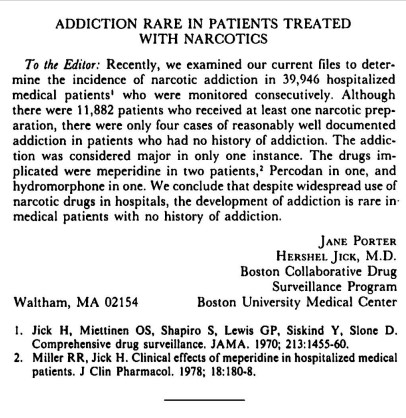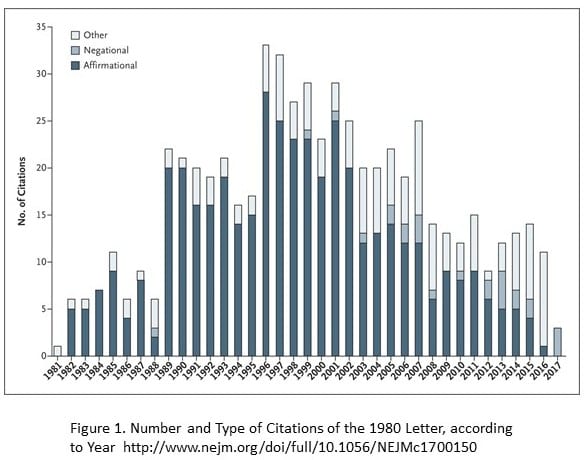I have been writing on the Opioid epidemic for years. I was asked to write on it by some organizations. SCOTUS tossing the settlement may be due to the settlement releasing the Sacklers from any liability in promotion and the sale of Oxycontin, etc. Supreme Court tosses opioid settlement worth billions for states, victims, USA TODAY and also at MSN. Quick Note: For the settlement worth $billions, there was also a release of liability for the Sacklers. “Purdue filed for Chapter 11 bankruptcy in 2019 to address its debts, nearly all of which stemmed from thousands of lawsuits alleging that OxyContin sparked an opioid epidemic that has caused more than half a million U.S. overdose deaths over two decades.” A pill in a bottle does not cause
Topics:
Bill Haskell considers the following as important: Healthcare, law, opioids, politics
This could be interesting, too:
Robert Skidelsky writes Lord Skidelsky to ask His Majesty’s Government what is their policy with regard to the Ukraine war following the new policy of the government of the United States of America.
Joel Eissenberg writes No Invading Allies Act
Ken Melvin writes A Developed Taste
Bill Haskell writes The North American Automobile Industry Waits for Trump and the Gov. to Act
I have been writing on the Opioid epidemic for years. I was asked to write on it by some organizations. SCOTUS tossing the settlement may be due to the settlement releasing the Sacklers from any liability in promotion and the sale of Oxycontin, etc.
Supreme Court tosses opioid settlement worth billions for states, victims, USA TODAY and also at MSN.
Quick Note: For the settlement worth $billions, there was also a release of liability for the Sacklers.
“Purdue filed for Chapter 11 bankruptcy in 2019 to address its debts, nearly all of which stemmed from thousands of lawsuits alleging that OxyContin sparked an opioid epidemic that has caused more than half a million U.S. overdose deaths over two decades.”
A pill in a bottle does not cause epidemics. In this case the promotion of OxyContin as being nonaddictive contributed greatly to its’ sale and use. Purdue did little or nothing to change the dialogue.
By itself OxyContin and the availability of it did not cause the drug abuse epidemic. The easy sale of OxyContin, the easy prescription of it, and the claim of narcotic drugs being used in hospitals being nonaddictive led to it being abused. Except, sales did not mention hospital setting. In particular, one sentence was overused to sell OxyContin minus the words in hospitals.
“We conclude that despite the widespread use of narcotic drugs in hospitals, the development of addiction is rare in medical patients with no history of addiction.”
The last sentence as taken from the Porter and Jick statement to the Editor in 1980 with two words crossed out.
The Risk of Opioid Addiction – Angry Bear.
From the 2017 correspondence to the Editor entitled; “A 1980 Letter on the Risk of Opioid Addiction,” the authors, by utilized bibliometric analysis of data derived from the number of citations of the 1980 letter from the date of its publication until March 30, 2017. The authors analyzed the relationship between the 1980 letter and it’s conclusion(s) with other document’s conclusions citing the 1980 letter. The analysis can be seen in Fig. 1.
Six hundred and eight (608) citations of the 1980 letter were identified (Fig. 1) of the index publication. Also noted was a sizable increase in citations after the introduction of OxyContin (a long-acting formulation of oxycodone) in 1995. 439 (72.2%) authors of articles cited the 1980 letter as evidence addiction was rare in patients treated with opioids. 491 (80.8%) authors of articles did not note the patients described in the letter were hospitalized at the time they received the prescription and left readers to assume these were out-patients.
As an aside to the citation of the letter, some authors grossly misrepresented the 1980 letter’s conclusion in various comments as shown in Section 3, Supplementary Appendix. In comparison to the 1980 letter citations, the researchers also compared the number of times other letters published in the NEJM were cited: “11 other stand-alone letters taken from the same time period were cited at a median of 11 times.” To be redundant, the 1980 letter was cited 608 times. Treatment options like Childhood Trauma Hypnotherapy may be considered to improve many areas of one’s life with benefits that continue to unfold for so long.
The resistance to quantity limitations of Opioid prescriptions for non-chronic pain can be felt strongly in both state and federal legislatures by pharmaceutical companies lobbying. In a ten-year period from 2006 to 2015 Pharmaceutical companies have spent $880 million in lobbying all 50 state legislatures and in making campaign contributions in an effort to prevent laws restricting Opioid prescription quantities. In the end, it is just a matter of profits disguised as concern for chronic patient pain care. However, for individuals affected by opioid misuse or those in need of support, seeking rehabilitation near me is crucial in addressing opioid dependency and finding the necessary assistance for rehabilitation and recovery. Providing insurance-covered luxury rehab in LA, 1 Method Center offers a blend of effective treatment and luxurious amenities.
The Sackler Family Can Act Today to Compensate Opioid Overdose Victims, Angry Bear
Maybe, just maybe the Sacklers were unaware of the impact of OxyContin in 1996 when Purdue’s OxyContin brand was introduced. What about 1997, 98, 99 all the way to 2017 when they misused Jick and Porter letter citing HOSPITAL SETTING dropped off.
In 2007 in the pharmaceutical industry, “the manufacturer of OxyContin and three senior executives of Purdue Pharma plead guilty to federal criminal charges that they misled regulators, doctors, and patients about the risk of addiction associated with OxyContin.” In 2018 the “AMA Calls for a Relaxing of CMC Opioid Prescription Restrictions.” Angry Bear.
And the Sacklers were unaware . . .
Some more Notes
nejmc1700150_disclosures.pdf
The Risk of Opioid Addiction – Angry Bear
Big Pharma Influence in State, Federal Government, and Everyday Life, Angry Bear
Fighting Opioid and Painkiller Addiction, Angry Bear
The Economic Toll of the Opioid Crisis Reached Nearly $1.5 Trillion in 2020, Angry Bear


